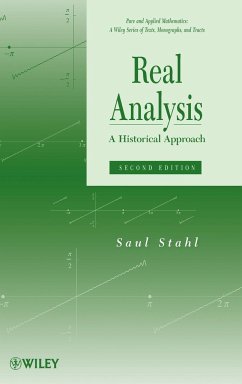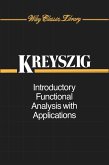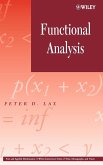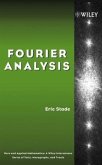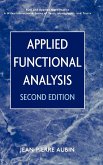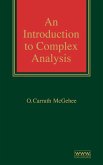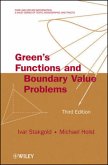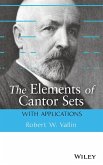Combining historical coverage with key introductory fundamentals, Real Analysis: A Historical Approach, Second Edition helps readers easily make the transition from concrete to abstract ideas when conducting analysis. Based on reviewer and user feedback, this edition features a new chapter on the Riemann integral including the subject of uniform continuity, as well as a discussion of epsilon-delta convergence and a section that details the modern preference for convergence of sequences over convergence of series. Both mathematics and secondary education majors will appreciate the focus on mathematicians who developed key concepts and the difficulties they faced.
A provocative look at the tools and history of real analysis
This new edition of Real Analysis: A Historical Approach continues to serve as an interesting read for students of analysis. Combining historical coverage with a superb introductory treatment, this book helps readers easily make the transition from concrete to abstract ideas.
The book begins with an exciting sampling of classic and famous problems first posed by some of the greatest mathematicians of all time. Archimedes, Fermat, Newton, and Euler are each summoned in turn, illuminating the utility of infinite, power, and trigonometric series in both pure and applied mathematics. Next, Dr. Stahl develops the basic tools of advanced calculus, which introduce the various aspects of the completeness of the real number system as well as sequential continuity and differentiability and lead to the Intermediate and Mean Value Theorems. The Second Edition features:
A chapter on the Riemann integral, including the subject of uniform continuity
Explicit coverage of the epsilon-delta convergence
A discussion of the modern preference for the viewpoint of sequences over that of series
Throughout the book, numerous applications and examples reinforce concepts and demonstrate the validity of historical methods and results, while appended excerpts from original historical works shed light on the concerns of influential mathematicians in addition to the difficulties encountered in their work. Each chapter concludes with exercises ranging in level of complexity, and partial solutions are provided at the end of the book.
Real Analysis: A Historical Approach, Second Edition is an ideal book for courses on real analysis and mathematical analysis at the undergraduate level. The book is also a valuable resource for secondary mathematics teachers and mathematicians.
A provocative look at the tools and history of real analysis
This new edition of Real Analysis: A Historical Approach continues to serve as an interesting read for students of analysis. Combining historical coverage with a superb introductory treatment, this book helps readers easily make the transition from concrete to abstract ideas.
The book begins with an exciting sampling of classic and famous problems first posed by some of the greatest mathematicians of all time. Archimedes, Fermat, Newton, and Euler are each summoned in turn, illuminating the utility of infinite, power, and trigonometric series in both pure and applied mathematics. Next, Dr. Stahl develops the basic tools of advanced calculus, which introduce the various aspects of the completeness of the real number system as well as sequential continuity and differentiability and lead to the Intermediate and Mean Value Theorems. The Second Edition features:
A chapter on the Riemann integral, including the subject of uniform continuity
Explicit coverage of the epsilon-delta convergence
A discussion of the modern preference for the viewpoint of sequences over that of series
Throughout the book, numerous applications and examples reinforce concepts and demonstrate the validity of historical methods and results, while appended excerpts from original historical works shed light on the concerns of influential mathematicians in addition to the difficulties encountered in their work. Each chapter concludes with exercises ranging in level of complexity, and partial solutions are provided at the end of the book.
Real Analysis: A Historical Approach, Second Edition is an ideal book for courses on real analysis and mathematical analysis at the undergraduate level. The book is also a valuable resource for secondary mathematics teachers and mathematicians.

